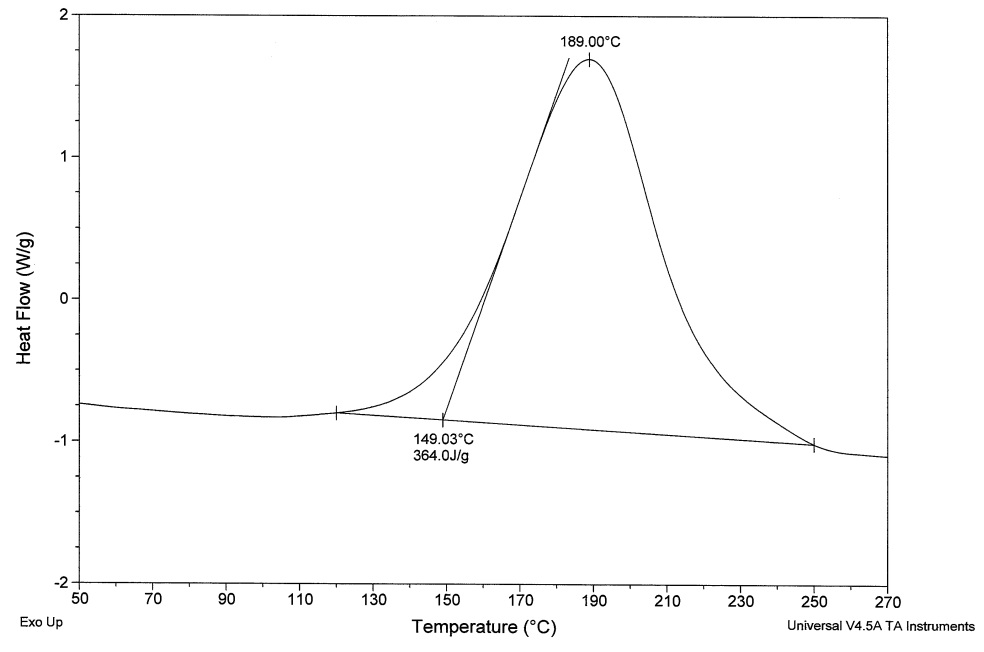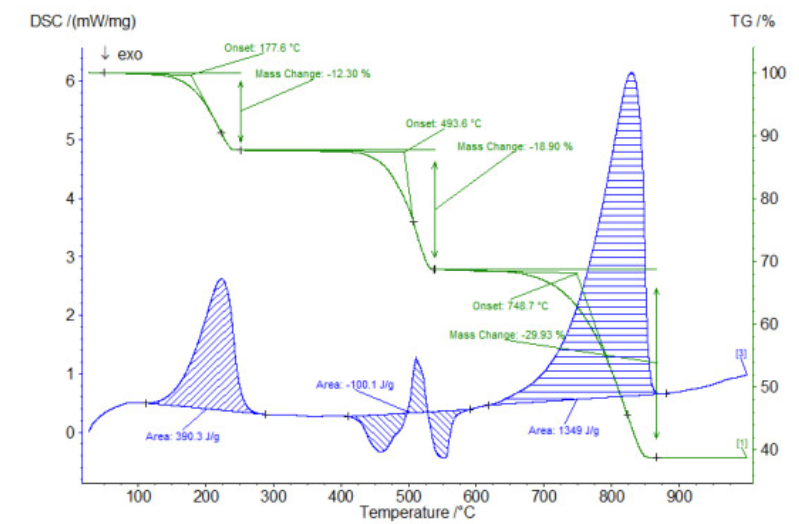Differential Scanning Calorimetry (DSC)
DSC is a crucial technique for understanding phase transitions in materials.
DSC measures heat flow associated with phase changes in materials. It is especially useful for studying polymers, pharmaceuticals, and composites. By observing these transitions, you can optimize material formulations and ensure product stability.
How It Works:
A small sample (a few milligrams) is placed in a pan and subjected to a controlled heating or cooling rate. The heat flow into or out of the sample is compared with that of a reference pan. By analyzing the heat exchange, phase transitions such as melting, crystallization, and glass transition can be identified.
Expected Outcomes:
- Precise determination of melting and glass transition temperatures.
- Identification of material purity and consistency.
- Data on specific heat capacity, providing insights into material properties.
DSC is essential for applications in material development, quality control, and failure analysis.

.png)
Thermogravimetric Analysis (TGA)
TGA measures weight loss in materials as they are exposed to increasing temperatures, providing insights into thermal stability.
This technique is vital for analyzing polymers, composites, and materials subjected to high temperatures. It helps determine decomposition, oxidation, moisture loss, and volatile content.
How It Works:
A small sample is heated in a controlled atmosphere, and its mass is continuously monitored. As the temperature increases, material degradation, oxidation, or moisture loss occurs, and these changes are recorded on a thermogram.
Expected Outcomes:
- Identification of decomposition temperatures and temperature ranges.
- Measurement of residual mass after heating.
- Analysis of volatile content and moisture loss.
TGA is crucial for assessing material durability, identifying degradation mechanisms, and confirming formulation consistency.
Simultaneous Thermal Analysis (DSC-TGA or STA)
STA combines DSC and TGA to offer a comprehensive view of thermal events, providing a deeper understanding of material behavior.
This dual approach allows simultaneous measurement of heat flow and weight changes, providing more detailed insights than individual techniques.
How It Works:
A sample is heated under controlled conditions, measuring both thermal transitions (via DSC) and mass loss (via TGA). This allows researchers to correlate decomposition events with phase transitions, enhancing material characterization.
Expected Outcomes:
- Detailed understanding of both phase transitions and decomposition behaviors.
- Improved accuracy in material characterization, particularly for complex materials.
- Insights into both thermal stability and reaction kinetics.
STA is ideal for studying materials like polymers, composites, and pharmaceuticals where simultaneous thermal analysis is necessary.

.jpg)
Thermomechanical Analysis (TMA)
TMA provides valuable insights into how materials expand, contract, or deform under temperature changes.
This technique is particularly useful for evaluating the mechanical stability and thermal expansion of materials, crucial for industries like aerospace, automotive, and construction.
How It Works:
A sample is subjected to mechanical force (e.g., compression, tension, or bending) while the temperature is controlled. The resulting dimensional changes are monitored to assess the material’s thermal expansion properties and softening behavior.
Expected Outcomes:
- Measurement of the coefficient of thermal expansion (CTE).
- Analysis of softening points, viscoelastic properties, and dimensional stability.
- Understanding of how materials behave under thermal stress.
TMA is essential for designing materials that need to perform predictably across varying temperature conditions.
Frequently Asked Questions about Thermal Analysis Testing Services
What Advantages Does Thermal Analysis Offer?
Thermal Analysis services like DSC, TGA, STA, and TMA provide invaluable data for:
- Quality Control
- Research and Development
- Material Characterization
- Stability Studies
How Does CAPLINQ Ensure Reliable Thermal Analysis?
Our commitment to quality involves:
- Using cutting-edge thermal analysis equipment
- Adhering to ASTM, ISO, and other international standards
- Regular calibration and validation of instruments
- Expert interpretation by seasoned analysts


